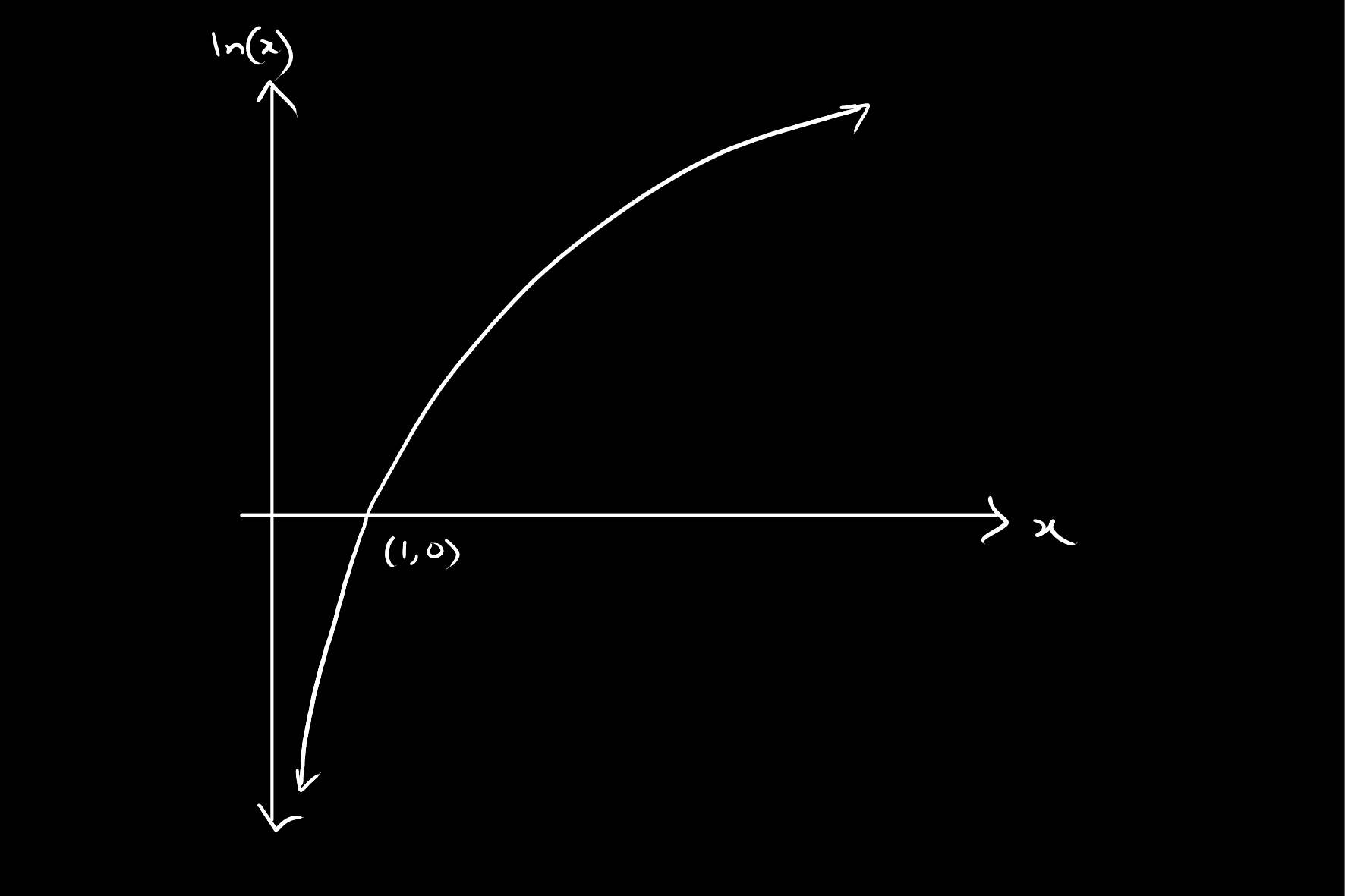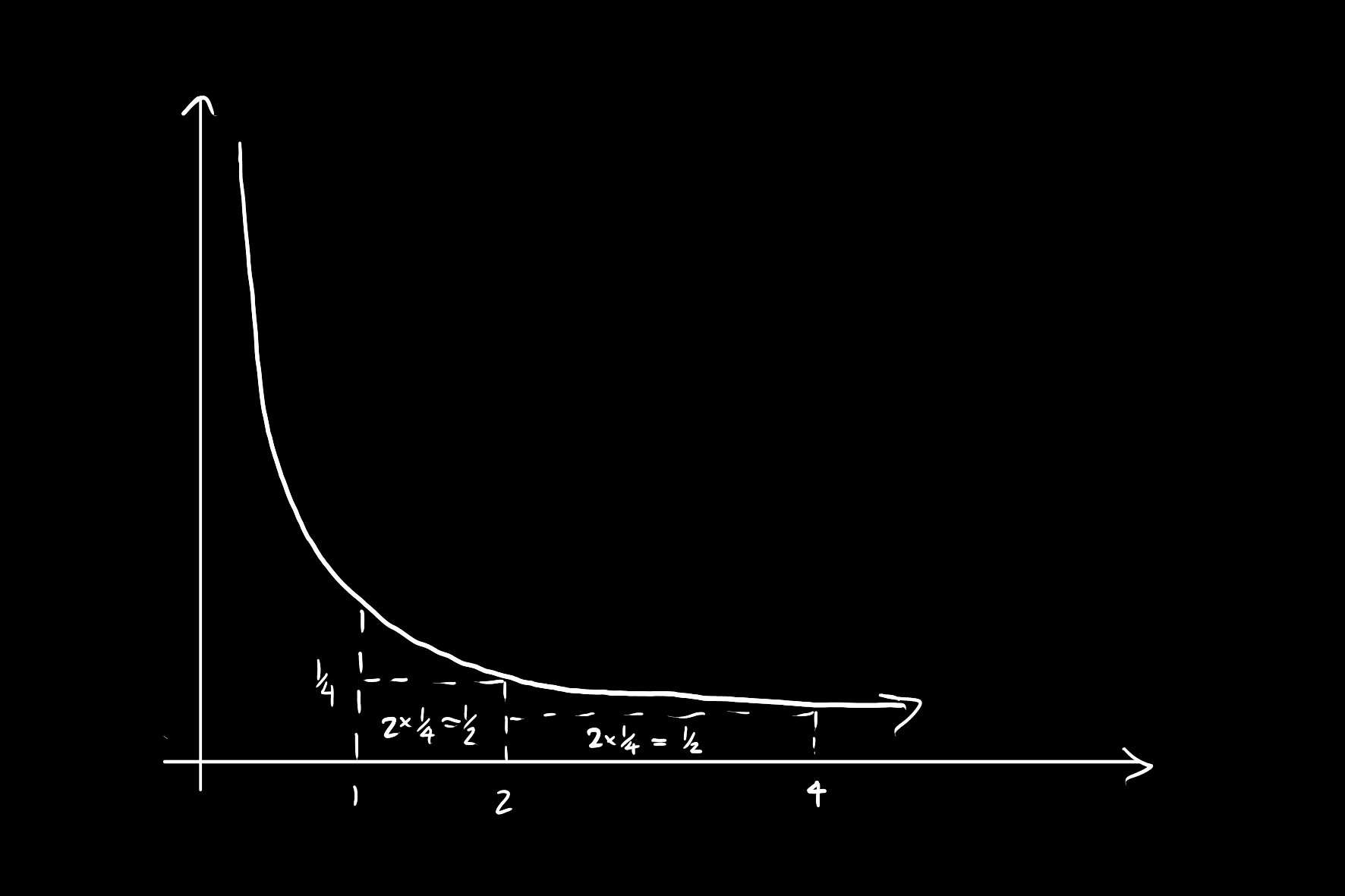Natural Logarithm
The natural logarithm \(\ln : (0, \infty) \to \mathbb{R}\) is a function defined as follows:

Properties
\(\ln(a) + \ln(b) = \ln(ab)\) for \(a, b > 0\)
Proof
Now we use a substitution of \(u = at\) in the second integral. In this case we have \(\frac{\mathrm{d}u}{\mathrm{d}t} = a\). Furthermore, \(t = 1 \implies u = a\) and \(t = b \implies u = ab\). This change of bounds is the main motivation for this substitution.
\(b\ln(a) = \ln(a^{b})\) for \(a > 0\) and \(b \in \mathbb{Q}\)
Proof
We can use a substitution of \(u = t^{b}\) which gives \(\frac{\mathrm{d}u}{\mathrm{d}t} = bt^{b-1}\), \(t = 1 \implies u = 1\), and \(t = a \implies u = a^{b}\).
Note that this proof requires that \(b \in \mathbb{Q}\) since a general notion of taking an irrational power depends on the exponential function which comes from the natural logarithm. That said, one can prove that it holds in general with that definition.
\(\ln(x)\) diverges as \(x \to \infty\).
Proof
Consider the area under \(\frac{1}{x}\) from \(2^{k}\) to \(2^{k+1}\) for some \(k \in \mathbb{Z}^{+}\). This area is bounded below by the width of the interval, multiplied by the minimum of the function on the interval, specifically:

If we then evaluate this for \(k = 0, 1, 2 \dots\) we have that:
Then since \(\sum_{k=0}^{n-1} \frac{1}{2}\) diverges as \(n \to \infty\) so does \(\ln(2^{n})\).